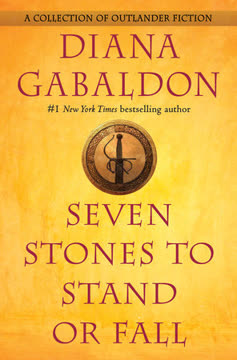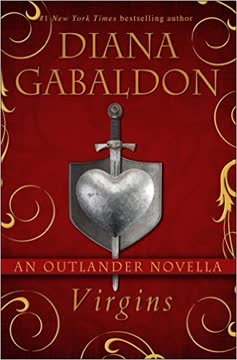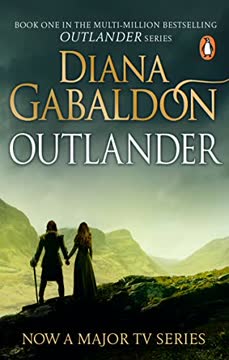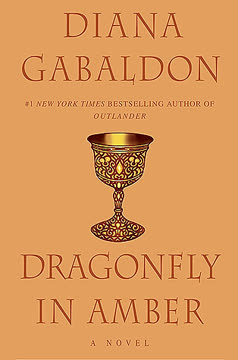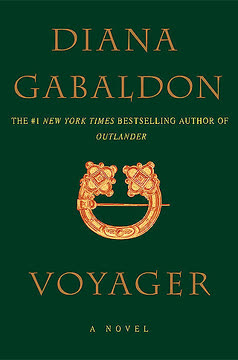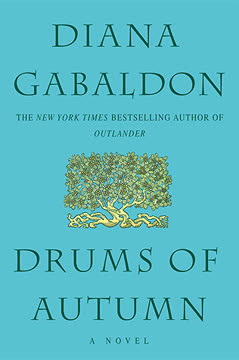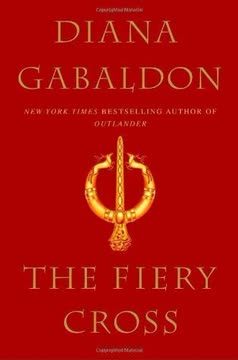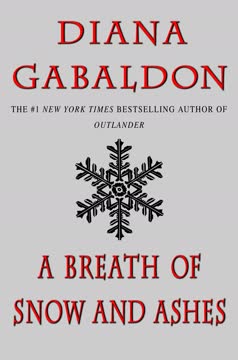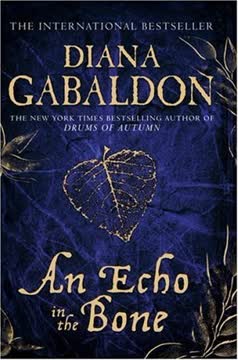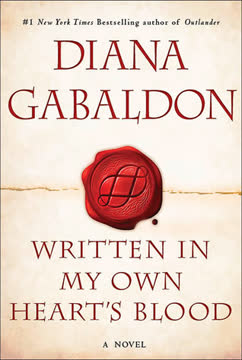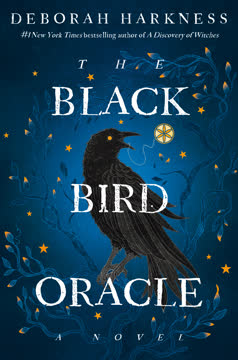Plot Summary
Stones and Choices
The Outlander universe is a tapestry of lives interwoven by fate, time, and the choices made in the face of adversity. Each novella in this collection stands as a stone—an episode where characters must choose to stand or fall, to persist or surrender. Whether it's a young Jamie Fraser forging his path as a mercenary, Lord John Grey navigating the treacherous politics of the British Army, or Minnie Rennie seeking her lost mother, every story is a meditation on survival, identity, and the cost of loyalty. The stones are both literal and symbolic: ancient circles, tokens of memory, and the burdens of the past. Each character's journey is marked by the stones they carry and the ones they leave behind.
Electric Eels and Duels
Lord John Grey's life is upended by a bizarre London party featuring an electric eel, leading to a duel that ends in the accidental death of a rival. The event spirals into scandal, guilt, and a forced journey to Canada as a character witness. The eel's jolt is more than physical—it's a catalyst, propelling John into a world of military intrigue, personal reckoning, and the search for justice. The duel's aftermath haunts him, as does the question of intent and consequence. The electric eel becomes a metaphor for the unpredictable shocks of life, the way a single moment can alter the course of a life, and the necessity of facing the consequences with integrity.
Letters, Loss, and Legacies
Letters, documents, and artifacts—lost, found, forged, or withheld—shape destinies. The correspondence between Esmé Grey and her lover Nathaniel Twelvetrees, and between Esmé and her husband Hal, becomes the fulcrum of a tragedy that ripples through families and generations. Minnie Rennie's search for her mother is driven by a single, cryptic letter. The written word is both weapon and balm: it exposes secrets, cements betrayals, and offers the hope of understanding. The act of reading or returning a letter is an act of courage, a confrontation with the past, and a step toward forgiveness or damnation.
Shadows in the Colonies
In the Caribbean and the Americas, Lord John Grey faces the chaos of colonial unrest: slave revolts, zombie legends, and the moral ambiguities of empire. The boundaries between the living and the dead, the free and the enslaved, blur in the heat and violence of Jamaica and Cuba. The supernatural and the liminal is never far from the surface—zombies, obeah, and the power of belief shape the actions of men and women alike. The colonial world is a crucible, testing the limits of justice, compassion, and the meaning of freedom.
The Price of Freedom
The promise of freedom is a double-edged sword. For the enslaved, it is a hope that demands risk and sacrifice; for the powerful, it is a responsibility fraught with peril. Lord John's negotiations with rebelling slaves, and Malcolm Stubbs's dangerous bargains, reveal the complexities of liberation. Freedom is never given freely—it must be seized, earned, and sometimes paid for with betrayal or death. The stories ask: What is the value of a promise? What debts do we owe to those we free, and to those we leave behind?
Ghosts and Gremlins
The specters of war, lost love, and missed chances haunt the characters. Jerry MacKenzie, Roger's father, is literally lost in time, a ghost in his own life, while the living are haunted by memories and regrets. Gremlins—both mechanical and metaphorical—sabotage the best-laid plans, reminding us that fate is capricious and the past is never truly past. The supernatural is woven into the fabric of reality, blurring the line between history and myth, and forcing characters to confront the ghosts that shape their present.
Love, War, and Sacrifice
Love is both a refuge and a battlefield. The stories are filled with lovers separated by war, duty, or time—Jamie and Ian's brotherhood, Minnie and Hal's unlikely union, Esmé's divided heart. Sacrifice is demanded at every turn: for country, for family, for honor. The cost of love is often loss, but it is also the force that compels characters to endure, to hope, and to risk everything for a chance at redemption or reunion.
Secrets in the Blood
Blood ties are both blessing and curse. The search for parents, the burden of illegitimacy, and the secrets that families keep are central to the characters' struggles. Minnie's quest for her mother, Jerry's longing for his wife and son, and the tangled legacies of the Greys and Frasers all speak to the power of ancestry and the pain of not knowing where one comes from. The stories probe the ways in which blood—literal and metaphorical—binds and divides, and how the truth, once revealed, can set one free or destroy.
The Art of Survival
Survival is an art, requiring wit, resilience, and the ability to adapt. Whether it's Minnie navigating the treacherous world of espionage and rare books, Lord John maneuvering through military and social minefields, or Jerry MacKenzie fighting to return to his family, each character must learn to survive in a world that is often hostile and unpredictable. The stories celebrate the resourcefulness of those who refuse to be victims, who find ways to endure and even thrive in the face of overwhelming odds.
Betrayal and Forgiveness
Betrayal—by lovers, friends, or fate—leaves scars that may never fully heal. Yet forgiveness, when it comes, is a grace that allows for new beginnings. The stories are filled with betrayals large and small, but also with moments of mercy and understanding. The act of forgiving, or being forgiven, is shown as both a gift and a burden, a necessary step toward wholeness but one that demands courage and humility.
The Weight of Memory
Memory is both a treasure and a torment. The characters are shaped by what they remember—and by what they cannot forget. The past is never truly past; it lives on in letters, in scars, in the stories we tell ourselves and others. The struggle to remember, to honor the dead, and to find meaning in suffering is at the heart of these tales. The stories ask: How do we carry our memories without being crushed by them? How do we let go, and when must we hold on?
The Edge of Time
Time is fluid in the Outlander universe, and the boundaries between past, present, and future are porous. Characters slip through time, intentionally or not, and must navigate the dislocation and wonder that comes with it. The stories explore the "space between"—the liminal moments where choices are made, where the future is not yet fixed, and where the possibility of change exists. Time is both enemy and ally, a force that can heal or destroy.
The Cost of Truth
The pursuit of truth—about oneself, about others, about the world—is fraught with peril. Secrets, once revealed, can liberate or devastate. The stories probe the cost of honesty: the pain of confession, the risk of exposure, the danger of knowing too much. Yet truth is also shown as a path to freedom, a necessary step toward self-knowledge and peace. The characters must decide what truths are worth the price, and what lies must be left unspoken.
The Shape of Destiny
Destiny is a force that shapes lives, but it is never absolute. The characters are constantly confronted with the tension between fate and free will, between the paths laid out for them and the ones they choose to forge. The stories are filled with moments where a single decision alters everything, where the future hangs in the balance. Destiny is both a comfort and a challenge, a reminder that while we may not control all that happens to us, we are responsible for how we respond.
The Ties That Bind
No one stands alone. The stories celebrate the bonds of friendship, family, and community that sustain the characters through hardship and joy. Whether it's the brotherhood of soldiers, the loyalty of servants, or the love of family, these ties are shown as both strength and vulnerability. The need to belong, to be seen and understood, is universal—and the pain of isolation is keenly felt. The stories remind us that we are all bound together, for better or worse.
The Lasting Gaze
The act of looking—at the past, at loved ones, at the future—is a recurring motif. The characters are often caught in moments of reflection, of longing, of hope. The gaze is both a way of holding on and of letting go, a means of connecting across time and distance. The stories end with characters looking forward, even as they carry the weight of what has come before, their eyes fixed on the horizon, searching for what comes next.
The Duty of Survivors
Survival is not only a matter of endurance but of responsibility. Those who live are charged with remembering, with telling the stories of those who did not. The act of writing, of bearing witness, is shown as both burden and blessing. The survivors in these tales—whether of war, loss, or love—must find meaning in their endurance, and in doing so, offer hope to those who come after.
Standing or Falling
The collection's title is its ultimate question: When faced with grief, adversity, or the end of all things, do we stand or do we fall? The stories offer no easy answers, but they insist on the necessity of choice. To stand is not to be unbroken, but to persist, to bear witness, to love in the face of loss. To fall is not always failure, but sometimes surrender, rest, or the return to the earth. In the end, the stones we stand on are the stories we tell, the choices we make, and the love we leave behind.
Characters
Lord John Grey
Lord John Grey is a British officer whose life is marked by duty, honor, and the constant negotiation of his own desires and secrets. He is a man of deep integrity, but also of profound loneliness, shaped by the loss of love and the burdens of command. His relationships—with his brother Hal, with Jamie Fraser, with his mother and stepfather—are complex, marked by loyalty, disappointment, and the longing for connection. John's journey through duels, courts-martial, colonial intrigue, and personal reckoning is a study in resilience and the cost of living by one's principles. He is both a witness to history and a man struggling to find his place within it, forever caught between worlds.
Jamie Fraser
Jamie Fraser is a young man forged in the fires of loss and violence. His journey from wounded outlaw to mercenary in France is a crucible of pain, loyalty, and the search for meaning. Jamie's bond with Ian Murray is the anchor of his early life, a brotherhood tested by war, betrayal, and the demands of survival. Jamie is marked by his sense of honor, his capacity for love, and the scars—physical and emotional—that he carries. His story is one of endurance, the struggle to remain whole in a world determined to break him, and the hope that, even in exile, one can find purpose and belonging.
Minnie Rennie (Minerva Wattiswade)
Minnie is a rare woman in her time: intelligent, resourceful, and fiercely independent. Raised by a father who deals in secrets, she becomes a master of information, forgery, and negotiation. Her quest to find her lost mother is both a literal and metaphorical search for identity, belonging, and forgiveness. Minnie's relationships—with her enigmatic father, her lost mother, and eventually with Hal Grey—are fraught with longing, disappointment, and the hope of redemption. She is a woman who refuses to be defined by her circumstances, carving out a place for herself in a world that offers little space for women of ambition and wit.
Harold "Hal" Grey, Duke of Pardloe
Hal is a man shaped by the weight of family history, personal tragedy, and the expectations of society. His marriage to Esmé is both a love story and a source of profound pain, culminating in betrayal, loss, and the struggle to reclaim honor. Hal's relationship with his brother John is central to his identity, a mix of rivalry, affection, and mutual dependence. As a military leader, Hal is both capable and haunted, driven by the need to restore his family's name and to find meaning in a world that has taken much from him. His journey is one of reckoning—with the past, with his own failings, and with the possibility of new beginnings.
Esmé Grey, Countess Melton
Esmé is a woman of passion, intelligence, and complexity. Her affair with Nathaniel Twelvetrees and her marriage to Hal are the twin engines of a tragedy that reverberates through families and generations. Esmé is both victim and agent: her choices are shaped by longing, loneliness, and the constraints of her world, but they also set in motion events that cannot be undone. Her letters are a testament to her wit, her cruelty, and her vulnerability. In death, she becomes a haunting presence, a reminder of the cost of desire and the impossibility of undoing the past.
Nathaniel Twelvetrees
Nathaniel is a man undone by love and by his own limitations. His affair with Esmé is both a source of joy and the cause of his destruction. Nathaniel's letters reveal a man desperate for connection, but also outmatched by the force of Esmé's will and the consequences of their actions. His death at Hal's hand is both a personal tragedy and a public scandal, the spark that ignites a chain of events affecting many lives. Nathaniel is a symbol of the dangers of passion untempered by wisdom, and of the ways in which love can both elevate and destroy.
Ian Murray
Ian is Jamie Fraser's closest companion, a man of quiet strength, humor, and steadfastness. His journey alongside Jamie is one of shared hardship, laughter, and the testing of brotherhood. Ian's own struggles—with faith, with love, with the demands of war—mirror Jamie's, but his gentleness and resilience offer a counterpoint to Jamie's fiercer nature. Ian is a reminder that survival is not only a matter of strength, but of kindness, adaptability, and the willingness to forgive.
Minnie's Father (Raphael Wattiswade)
Raphael is a man who lives by his wits, dealing in rare books, information, and the shadows between. His relationship with Minnie is both nurturing and fraught, marked by affection, manipulation, and the burden of secrets. Raphael's own past—his love for Minnie's mother, his choices in the face of loss—shapes his daughter's life in ways he cannot foresee. He is both protector and source of pain, a man who teaches Minnie the art of survival but also the cost of living in a world of shadows.
Jerry MacKenzie
Jerry is a man caught between worlds—literally lost in time during World War II, separated from his wife and son by forces beyond his control. His journey is one of longing, courage, and the desperate hope of reunion. Jerry's love for his family is the anchor of his existence, even as he becomes a ghost in his own life. His story is a meditation on fate, the randomness of loss, and the enduring power of love across time and space.
Rodrigo Sanchez
Rodrigo is a former slave, turned zombie by dark magic, and then restored to a semblance of life by Lord John Grey's intervention. His journey from death to life is both literal and symbolic, a testament to the possibility of redemption and the resilience of the human spirit. Rodrigo's relationship with Azeel, his struggle to reclaim his identity, and his role in the fight for freedom make him a figure of both tragedy and hope.
Azeel Sanchez
Azeel is a woman who has endured the horrors of slavery, loss, and the supernatural. Her love for Rodrigo, her courage in the face of danger, and her determination to survive make her a force to be reckoned with. Azeel is both nurturer and warrior, a woman who refuses to be broken by circumstance and who fights for the freedom and dignity of those she loves.
Plot Devices
Interwoven Novellas and Nonlinear Chronology
The structure of Seven Stones to Stand or Fall is itself a plot device: a collection of novellas, each focusing on different characters, times, and locations within the Outlander universe. This nonlinear approach allows for deep exploration of secondary characters, filling in gaps, offering alternative perspectives, and enriching the main narrative. The stories are linked by recurring themes—loss, survival, love, and the burden of history—and by the literal and metaphorical stones that mark turning points in each character's life. The device of the "bulge"—a story that fits within the larger novels but stands alone—creates a sense of a living, breathing world, where every life is a story worth telling.
Letters, Documents, and Artifacts
Letters, books, forged documents, and other artifacts are central to the unfolding of the plot. They serve as catalysts for action, repositories of memory, and sources of conflict. The act of reading, writing, or returning a letter is often a moment of revelation or crisis. Artifacts—whether a Book of Hours, a lock of hair, or a sapphire—carry the weight of history and the power to change lives. These objects are both plot devices and symbols, embodying the themes of memory, loss, and the search for truth.
Foreshadowing and Retrospective Revelation
The novellas are rich in foreshadowing, with events in one story casting shadows or light on another. Characters' fates are often hinted at before they are revealed, creating a sense of inevitability and interconnectedness. Retrospective revelations—discovering the truth about a parent, a lover, or a lost friend—reframe earlier events and force characters (and readers) to reconsider what they thought they knew. This device deepens the emotional impact and underscores the theme that the past is never truly past.
The Supernatural and the Liminal
Time travel, zombies, visions, and the persistent presence of ghosts and omens infuse the stories with a sense of the uncanny. The supernatural is never simply fantasy; it is a way of exploring the mysteries of fate, the power of belief, and the spaces "between" where change is possible. The liminal—thresholds, stones, moments of transition—is where the most important choices are made. This device allows for both wonder and terror, and for the exploration of questions that have no easy answers.
Moral Ambiguity and the Cost of Choice
The stories are marked by moral complexity: characters must make choices in situations where right and wrong are not clear-cut. Betrayal, forgiveness, and the price of survival are recurring dilemmas. The device of presenting multiple perspectives—sometimes on the same event—forces readers to empathize with characters whose actions may be questionable, and to recognize the humanity in even the most flawed individuals. This ambiguity is both a narrative strategy and a thematic core, inviting readers to reflect on their own values and judgments.
Analysis
Seven Stones to Stand or Fall is a masterful exploration of the spaces between—between life and death, past and present, love and loss, standing and falling. Through its interwoven novellas, the book expands the Outlander universe beyond the central saga, giving voice to characters who might otherwise remain in the margins. Gabaldon's storytelling is at once intimate and epic, blending historical detail with emotional depth, and infusing the ordinary with the extraordinary. The collection's structure—stories that can be read alone or as part of a greater whole—mirrors its themes: that every life is a stone in the cairn of history, every choice a moment of standing or falling. The book is a meditation on survival, the cost of truth, and the enduring power of love and memory. It asks what it means to bear witness, to forgive, to endure—and ultimately, to choose, again and again, to stand. For modern readers, the lessons are clear: that history is made not only by great events but by the quiet courage of individuals; that the past is never truly past; and that in the face of grief and adversity, we are all called to decide—will we stand, or will we fall?
Last updated:
Review Summary
Seven Stones to Stand or Fall is a collection of seven novellas set in the Outlander universe. Most reviewers enjoyed the book, particularly stories featuring Lord John Grey and those exploring secondary characters' backstories. Favorites included "A Fugitive Green" about Hal and Minnie, and "A Leaf on the Wind of All Hallows" about Roger's parents. While some felt the quality was inconsistent, fans appreciated the additional context and depth added to the Outlander world. The collection was seen as a satisfying fix for readers awaiting the next main series installment.
